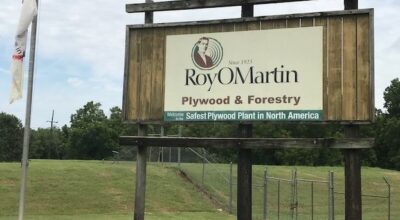New EPA rules will affect area industries
Published 4:54 pm Saturday, April 13, 2024

- (Metro Creative Services)
Southwest Louisiana chemical plants are on the list of more than 200 plants in the U.S. that will be required to reduce toxic emissions of certain chemicals likely to cause cancer. Almost half of the companies on the list are in Texas and Louisiana.
Local plants are Citgo, Lake Charles; Firestone, Sulphur; Westlake Corp companies (listed by the EPA as Westlake Styrene Marine Terminal, Westlake Petrochemicals-Ethylene Manufacturing Complex), Sulphur; Westlake Corp company (listed by the EPA as Eagle US 2), Westlake; Westlake South (listed by the EPA as Axiall), Westlake; Sasol Chemical, Westlake; and Lotte Chemical, Westlake.
The Environmental Protection Agency issued the new rule Tuesday, a health protection for communities burdened by industrial pollution from ethylene oxide, chloroprene and other chemicals. The move is a piece in the Biden administration’s “Cancer Moonshot,” a plan to mobilize a national effort to end cancer “as we know it,” the White House web page states. The goal is to prevent more than 4 million cancer deaths by 2047.
Two of the chemicals targeted in new standards are ethylene oxide and chloroprene. Ironically, ethylene oxide – which can be used as an intermediary chemical that never leaves the plant and is introduced by pipeline to produce products such as antifreeze and some fabrics – is used in the healthcare industry to sterilize surgical tools. It also supports the production of EV batteries and semiconductors.
This is the first time the national emissions standards for hazardous organic pollutants have been amended in 30 years. The industries will be required to find the source of pollution for those chemicals and others and make repairs if annual air concentrations of pollutants exceed standards, according to an article in the Illuminator earlier this week.
Some of the plants will be required to add fence-line monitoring near communities and share the data publicly.
Community activist Roishetta Ozane, founder and director of The Vessel Project of Louisiana wrote in an email about the announcement that the EPA should implement more effective enforcement measures, although they already have mechanisms in place to address facilities that are not in compliance. She lives less than five miles from all of the plants listed.
“Many of our efforts to oppose noncompliant or proposed facilities are carried out at the local level and are successful in the legal system,” she said. “The new EPA Hazardous Organic National (HON) rules will provide a strong foundation for legal action that can halt or significantly delay the permitting process on new plants.”
The Vessel Project of Louisiana is a mutual-aid, environmental justice organization that believes in the power of community-driven solutions to address environmental issues affecting low-income and marginalized communities.





